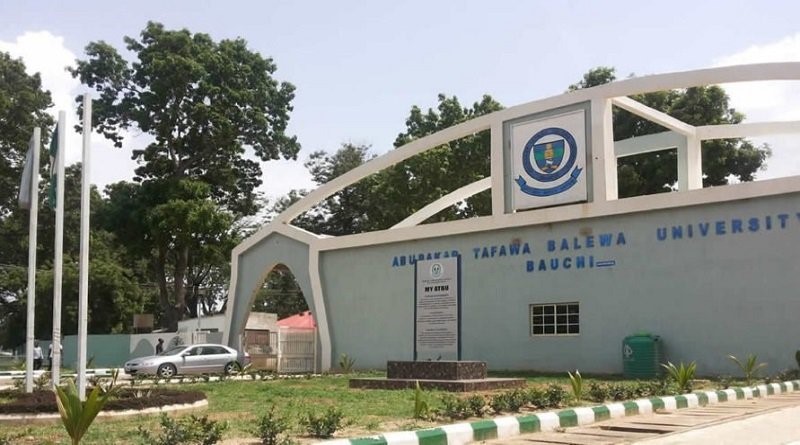Factors Affecting Quality Education in Nigeria – Education is a fundamental human right and a major factor in socioeconomic development of any nation or people. However, a number of factors contribute to the poor quality of education in Nigeria. These include a lack of resources, inadequate facilities, inadequate teacher preparation, political meddling, high dropout rates, outmoded curricula, restricted access to technology, corruption, restricted access to higher education, and socioeconomic disparities. These problems harm students individually, but they also have an adverse impact on the economy and society at large. The impact of these elements on the standard of education in Nigeria is discussed in detail in this article. Information Guide Nigeria
Read Also: 10 Factors Affecting Property Value In Nigeria
What is Education?
Acquiring knowledge, skills, values, beliefs, and habits is the process of education. It can happen in formal or informal settings, and it can be any experience that has a formative impact on how someone thinks, feels, or behaves. There are many different ways to learn, including in-person instruction, online learning, self-study, and apprenticeship. The development of a student’s knowledge, abilities, and skills as well as their preparation for life and employment in society are typically the objectives of education. Factors Affecting Quality Education
Types/Forms of Education.
Education can take many different forms, including self-directed learning, experiential learning, online learning, and traditional classroom-based learning.
- The typical setting for traditional classroom-based education is a school or university, where students attend classes taught by professors and gain knowledge through lectures, discussions, and practical exercises. 50 Best University In Nigeria That Offers Mass Communication
- Students can access educational resources and take classes online through online education, also referred to as e-learning. This can include interactive learning modules, recorded lectures, and live online classes.
- In a self-directed learning environment, the student is in charge of their education rather than relying on a teacher or instructor. Reading books, watching videos, or enrolling in online courses are all examples of this.
- In disciplines like business, engineering, and the sciences, experiential learning is a type of instruction that emphasizes practical, real-world experiences. 30 Best University In Nigeria For Public Administration
Each type and form of education has its own distinct advantages and disadvantages and may be appropriate for various types of learners.
Read Also: 10 Factors Affecting Exclusive Breastfeeding In Nigeria
Brief History of Education
Egypt, Greece, and Rome were just a few of the ancient civilizations with a long history of education. In these societies, education was typically only available to the wealthy and was centered on disciplines like rhetoric, philosophy, and mathematics. NYSC Portal
In the Middle Ages, the Catholic Church was primarily responsible for providing education through settings like monasteries and cathedral schools. Latin and religious education were the main topics of discussion.
Universities like the University of Oxford and the University of Bologna were founded during the Renaissance, which spanned the 14th to the 17th centuries. There was a resurgence of interest in classical learning during this time.
The development of public schools and the expansion of education to the general public during the 18th and 19th centuries marked the rise of the modern educational system. New educational philosophies, such as the progressive education movement, also came into being during this time.JAMB Portal
With the introduction of free compulsory education in many nations during the 20th century, education became more widely available. Additionally, the widespread use of computers and the internet in the classroom has had a big impact on education as a result of technological advancements.
Read Also: 10 Factors Affecting Rail Transport Performance In Nigeria
Stages of Education
Early childhood education focuses on building a foundation for learning, including fundamental abilities like language, socialization, and problem-solving. This stage typically lasts from ages 3-5.
- Primary education, also referred to as elementary education, is aimed at laying a solid foundation in fundamental subjects like reading, writing, math, and science. It typically lasts from ages 6 to 11.
- Secondary education: Also referred to as middle school and high school, this level is usually attended by students between the ages of 12 and 18 and is designed to help them get ready for college or the workforce.
- Higher education: Post-secondary institutions like trade schools, vocational schools, colleges, and universities are included in this stage. This phase aims to equip students with specialized knowledge and abilities in a given field.200 romantic love message for herJAMB Result
- After completing a formal education program, students may pursue any form of continuing education, such as workshops, seminars, or professional development courses.
Advantages of Education
- Enhanced capacity for critical thought and problem-solving
- Better world knowledge and understanding
- Improved interpersonal and communication skills
- Increased opportunities for growth on both a personal and professional level
- Improved career prospects and potential for greater income 200 romantic love message for her
- Positive effects on general well-being and quality of life
- Increased social responsibility and civic participation
- Exposure to various viewpoints and concepts
- Preparation for an informed and active participation in society through the development of self-discipline and self-motivation.
Read Also: 10 Factors Affecting Relationship In Nigeria
Factors Affecting Quality Education in Nigeria
The following factors affect the quality of education in Nigeria:
- Lack of funding: The education system in Nigeria is underfunded, which results in insufficient supplies and facilities for classrooms and staff members. This has an impact on the standard of instruction and students’ capacity for learning.
- Lack of basic facilities like classrooms, libraries, and laboratories in many Nigerian schools makes it difficult for students to learn and for teachers to impart knowledge.
- Limited opportunities for higher education: The lack of higher education opportunities for many Nigerian students restricts their career options and economic contribution.
- Socio-economic inequalities: Students from wealthy and poor backgrounds receive significantly different quality of education, which contributes to socio-economic inequalities and limits the potential of many students. 105 good morning messages
- Poor teacher preparation: Many teachers in Nigeria lack the necessary training, which prevents them from understanding contemporary teaching techniques and from effectively involving students.
- Political interference: Political interference frequently affects Nigeria’s education system, which results in inconsistent funding and policy decisions.
- High dropout rates: The general quality of education is impacted by the large number of students who leave school in Nigeria due to lack of resources, a lack of motivation, or other reasons.
- Problems with the curriculum: The Nigerian educational system is infamous for its out-of-date and irrelevant curriculum, which frequently fails to meet the demands of students or the labor market.
- Lack of access to technology limits students’ ability to learn and interact with the outside world in many Nigerian schools.
- Corruption: Corruption is a serious problem in Nigeria’s educational system, which has an impact on how resources are allocated and how well schools can run.
Read Also: 10 Factors Affecting the Growth of Commerce in Nigeria
Conclusion
In conclusion, a number of factors, such as a lack of funding, poor infrastructure, inadequate teacher preparation, political interference, high dropout rates, outdated curricula, limited access to technology, corruption, barriers to higher education, and socioeconomic disparities, have a significant impact on the quality of education in Nigeria. These problems have an adverse effect on each student as well as on the economy and society at large. It is crucial that these problems are resolved and that a thorough plan is put in place to guarantee that all students have access to a high-quality education if Nigeria is to improve the quality of education. This will necessitate a sizable financial outlay, political will, and a dedication to giving all students the resources and chances they need to succeed. To ensure that everyone in Nigeria has a better future, it is everyone’s duty to work together to make this happen.
Check JAMB RESULT
Check and Confirm: How much is Dollar to Naira



![UNILAG HRDC Application form 2024/2025 [Advanced Diploma, Diploma & Professional Certificate courses] UNILAG HRDC Application form 2024/2025 [Advanced Diploma, Diploma & Professional Certificate courses]](https://infoguidenigeria.com/wp-content/uploads/2021/08/UNILAGOS.jpg)